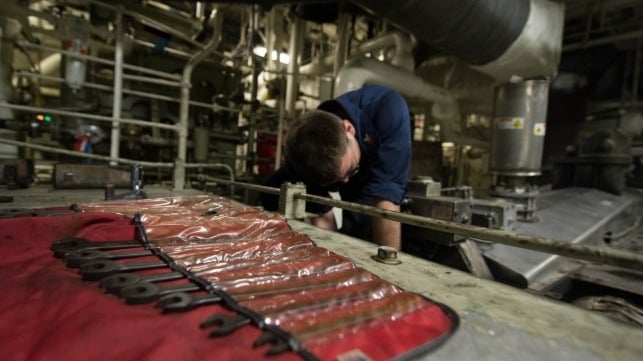GAO: Vendor Lock-In and Lack of Data Rights are Delaying Navy Maintenance

The Pentagon faces significant difficulty in maintaining some of its most important weapons platforms because it does not own the intellectual property rights to spare parts and repair instructions, leaving it wholly dependent upon the OEM's inventory and delivery timeline, according to the Government Accountability Office. This results in delayed maintenance of critical U.S. Navy systems, like the F-35 fighter and the Virginia-class attack submarine.
The Pentagon has guidelines for IP and data rights that apply to the early stages of the procurement process, but GAO found that these practices do not always adequately cover the IP needed for long-term sustainment. In fact, none of the programs it studied had fully incorporated all of the Pentagon's policies for IP acquisition; even when the data is bought and delivered from the OEM, Navy program staff often struggle to evaluate and make use of the thousands of engineering documents that come in over the transom.
"In general, officials told us they experienced challenges reviewing data deliverables due to the complexity of their systems and the volume of deliverables involved. All the programs we selected indicated that fully reviewing all data deliverables for accuracy and completeness was time and resource intensive," GAO found.
As a result of these difficulties, some programs get stuck in "vendor lock," tethered to a single supplier that owns the intellectual property to maintenance manuals and parts designs. The F-35 fighter is a notorious example, with the Navy, Air Force and Marine Corps all dependent on OEM contractors to perform approved repairs on front-line fighter jets, with OEM-determined costs and completion timelines. According to GAO, the Pentagon doesn't even own an illustrated parts breakdown of the aircraft as recently as March 2025.
For the Virginia-class submarine, the Navy's mission-critical attack sub, program officials told GAO that the prime contractor or OEMs own the technical data rights for certain components. This allows the OEM parts supplier to dictate the Navy's sub maintenance timeline, driving delays in yard repair periods - a major restriction on the sub fleet's ability to generate readiness. If OEMs do not deliver on time, according to program officials, sub maintainers will cannibalize parts from other subs to get one under way. This is an occasional practice for all militaries, but is inefficient and has a deleterious effect on overall readiness if used at scale. The Littoral Combat Ships face similar difficulties with OEM ownership of spare parts, tooling and technical data, maintainers told GAO.
To fix this, GAO proposes changing the law to require contractors to hand over more detailed manufacturing and process data to the armed forces as a standard part of a procurement contract. It also recommended that the Pentagon revise its policies and procedures on IP acquisition.
